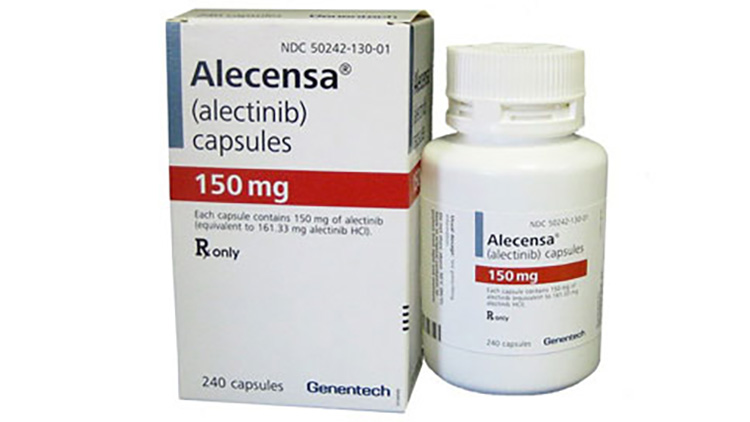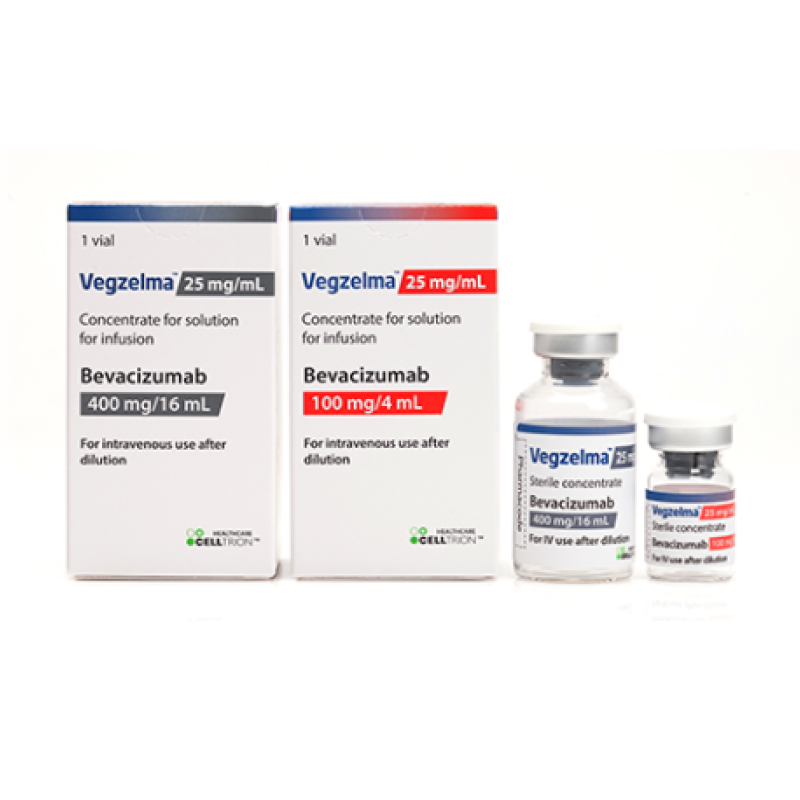Alecensa (alectinib) vs Vegzelma (bevacizumab-adcd)
Alecensa (alectinib) vs Vegzelma (bevacizumab-adcd)
Alecensa (alectinib) is a targeted therapy specifically indicated for the treatment of ALK-positive non-small cell lung cancer (NSCLC), designed to inhibit the activity of the ALK protein, which can promote cancer cell growth. On the other hand, Vegzelma (bevacizumab-adcd) is a biosimilar to Avastin (bevacizumab) and is used to treat various forms of cancer, including certain types of colorectal, lung, brain, kidney, and ovarian cancer, by inhibiting the formation of blood vessels that feed tumors (angiogenesis). The choice between Alecensa and Vegzelma would largely depend on the specific type of cancer a patient has and the presence of particular biomarkers, such as the ALK mutation for Alecensa, and should be made in consultation with an oncologist who can evaluate the individual's medical condition and treatment goals.
Difference between Alecensa and Vegzelma
| Metric | Alecensa (alectinib) | Vegzelma (bevacizumab-adcd) |
|---|---|---|
| Generic name | Alectinib | Bevacizumab-adcd |
| Indications | ALK-positive non-small cell lung cancer (NSCLC) | Various types of cancer including colorectal, lung, glioblastoma, kidney, and cervical |
| Mechanism of action | ALK inhibitor | Monoclonal antibody targeting VEGF |
| Brand names | Alecensa | Vegzelma |
| Administrative route | Oral | Intravenous |
| Side effects | Fatigue, constipation, edema, myalgia, anemia | Hypertension, fatigue, diarrhea, decreased appetite, urinary tract infection |
| Contraindications | Hypersensitivity to alectinib or excipients | Hypersensitivity to bevacizumab, Chinese hamster ovary cell products, or other components |
| Drug class | Tyrosine kinase inhibitor | Monoclonal antibody |
| Manufacturer | Genentech (Roche) | Celltrion Healthcare |
Efficacy
Alecensa (Alectinib) Efficacy in Lung Cancer
Alecensa (alectinib) is a targeted therapy approved for the treatment of non-small cell lung cancer (NSCLC) with specific genetic alterations. It is particularly effective in patients whose tumors have an anaplastic lymphoma kinase (ALK) gene mutation. Alectinib is an ALK inhibitor, which works by blocking the activity of the ALK protein, thereby preventing the growth of cancer cells. Clinical trials have demonstrated that alectinib is highly effective in treating ALK-positive NSCLC. In these studies, alectinib has shown to significantly prolong progression-free survival compared to chemotherapy and other ALK inhibitors. Additionally, it has been found to have activity in the brain, which is particularly important as brain metastases are common in ALK-positive NSCLC patients.
In the ALEX trial, a phase III clinical study, alectinib was compared to crizotinib, another ALK inhibitor, in previously untreated patients with ALK-positive NSCLC. The results showed that alectinib significantly reduced the risk of disease progression or death by 53% compared to crizotinib. Moreover, alectinib was found to have a favorable safety profile, with fewer severe side effects than crizotinib, making it a preferred first-line treatment option for ALK-positive NSCLC patients.
Vegzelma (Bevacizumab-adcd) Efficacy in Lung Cancer
Vegzelma (bevacizumab-adcd) is a biosimilar to the original monoclonal antibody bevacizumab, which is used in combination with other chemotherapeutic agents for the treatment of certain types of NSCLC. Bevacizumab targets the vascular endothelial growth factor (VEGF), a protein that promotes the growth of new blood vessels. By inhibiting VEGF, bevacizumab can help to prevent the tumor from developing the blood vessels it needs to grow and spread. The efficacy of bevacizumab in lung cancer has been established through numerous clinical trials, and as a biosimilar, Vegzelma is expected to have no clinically meaningful differences in terms of safety, purity, and potency compared to the reference product.
In a pivotal trial that led to the approval of the original bevacizumab, the addition of bevacizumab to standard chemotherapy showed a significant improvement in overall survival and progression-free survival in patients with non-squamous NSCLC. While specific clinical trial data for Vegzelma may not be as extensive as for the original bevacizumab, biosimilars undergo rigorous evaluation to ensure they are as effective and safe as their reference products. Vegzelma is therefore considered to be an effective treatment option for NSCLC when used in combination with chemotherapy, offering a potentially more cost-effective alternative to the original biologic.
Regulatory Agency Approvals
Alecensa
-
European Medical Agency (EMA), European Union

-
Food and Drug Administration (FDA), USA

-
Health Canada

-
Pharmaceuticals and Medical Devices Agency (PMDA), Japan

-
Therapeutic Goods Administration (TGA), Australia

-
Medsafe (NZ)

Vegzelma
-
European Medical Agency (EMA), European Union

-
Food and Drug Administration (FDA), USA

Access Alecensa or Vegzelma today
If Alecensa or Vegzelma are not approved or available in your country (e.g. due to supply issues), you can access them via Everyone.org.
How it works

Make an enquiry
Choose the medicine you want to buy, answer a couple of questions, and upload your prescription to speed things up. We’ll get back to you within 24 hours.


Make an enquiry
Choose the medicine you want to buy, answer a couple of questions, and upload your prescription to speed things up. We’ll get back to you within 24 hours.


Breeze through the paperwork
We'll guide you through the required documents for importing unapproved medicine, ensuring you have all the necessary information.


Get a personalized quote
We’ll prepare a quote for you, including medicine costs and any shipping, administrative, or import fees that may apply.


Receive your medicine
Accept the quote and we’ll handle the rest - sourcing and safely delivering your medicine.

Some text on this page has been automatically generated. Speak to your physician before you start a new treatment or medication.
Let's talk
If you have any questions, call us or send us a message through WhatsApp or email:
Contact us




